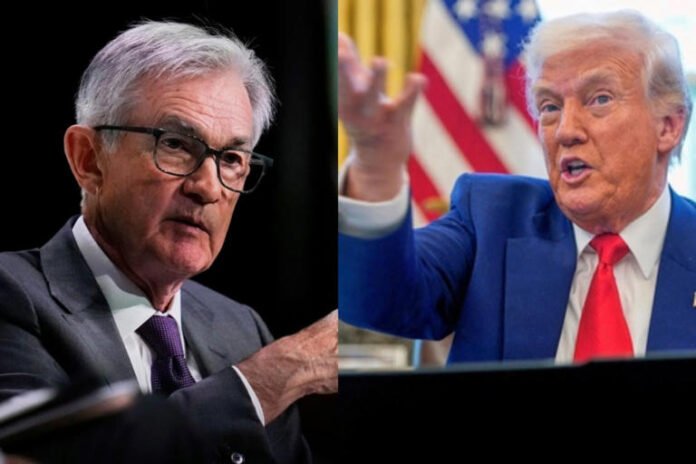U.S. Federal Reserve Chair Jerome Powell recently issued a stark warning about the potential economic consequences of reimposing tariffs if former President Donald Trump returns to power. Calling it a “challenging scenario,” Powell highlighted the long-term risks that new trade restrictions could pose to inflation, global supply chains, and overall economic growth.
As the U.S. presidential election looms closer, the possibility of Trump reclaiming the White House has reignited debates around trade policy. One of Trump’s signature economic strategies during his presidency was the aggressive use of tariffs, particularly targeting imports from China and other key trading partners. He argued that such tariffs protected American industries and workers from unfair competition. However, economists and analysts remain deeply divided on the actual impacts.
Now, as Trump hints at an even broader tariff agenda if elected again—potentially including a 10% tariff on all imports—Powell and other economic experts are urging caution. Speaking at a press conference following the Federal Open Market Committee (FOMC) meeting, Powell didn’t name Trump directly but made it clear that trade disruptions could significantly complicate the Fed’s goal of stabilizing inflation without triggering a recession.
“If we were to see a re-escalation of tariffs or trade barriers, that could put upward pressure on prices,” Powell explained. “It’s a challenging scenario when you’re already trying to manage inflationary pressures while maintaining economic momentum.”
Indeed, tariffs often result in higher costs for imported goods, which can feed into consumer price inflation. While they may offer short-term protection to some domestic industries, they can also lead to higher production costs, retaliatory measures from other countries, and disruptions in global supply chains. During Trump’s first term, tariffs on steel, aluminum, and Chinese electronics led to noticeable price hikes in various sectors and sparked counter-tariffs from U.S. allies and rivals alike.
Powell’s comments reflect a broader concern within financial circles. As the Fed battles to bring inflation down to its 2% target—following years of pandemic-era disruptions and global energy price shocks—any additional pressure on prices from trade policy could make the task even harder. A return to aggressive tariffs could also force the Fed into a difficult balancing act: whether to tighten monetary policy further to counter rising prices or ease off to prevent economic slowdown.
Some Republicans argue that tariffs are a necessary tool to counter China’s economic rise and to restore American manufacturing. They claim that a broad-based tariff system would incentivize companies to bring production back to the U.S. However, many economists argue that such measures could backfire, especially in a globally interconnected economy.
The World Trade Organization (WTO), along with numerous trade experts, has criticized blanket tariffs as economically inefficient and potentially damaging to long-term global growth. Furthermore, large multinational corporations based in the U.S. could suffer from disrupted supply chains and reduced access to foreign markets.
Financial markets, too, are watching the situation closely. Uncertainty about future trade policies can lead to volatility, as businesses and investors attempt to anticipate potential changes. If companies fear higher import costs or export restrictions, they may cut back on investment or pass costs on to consumers—both of which could undermine economic stability.
In his remarks, Powell made it clear that the Fed does not set trade policy and will adapt to whatever fiscal landscape is presented. However, he emphasized that stability and predictability in trade relations are important factors in maintaining a healthy economic environment.
As the 2024 election cycle intensifies, Powell’s warning serves as a reminder that economic policies—especially those related to international trade—have far-reaching effects. The return of tariffs may appeal to some political constituencies, but it comes with economic trade-offs that could influence inflation, growth, and even interest rates.
In the end, the debate around tariffs is not just about trade—it’s about the broader direction of American economic policy in a deeply interconnected world. Whether or not the U.S. chooses that path again remains to be seen, but Powell’s message is clear: tread carefully.

